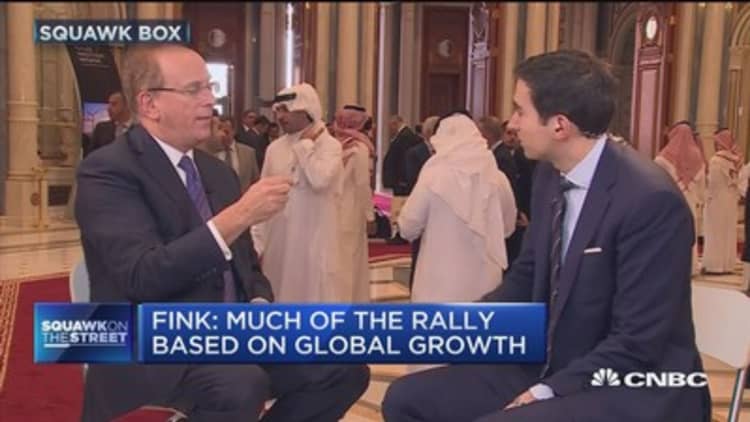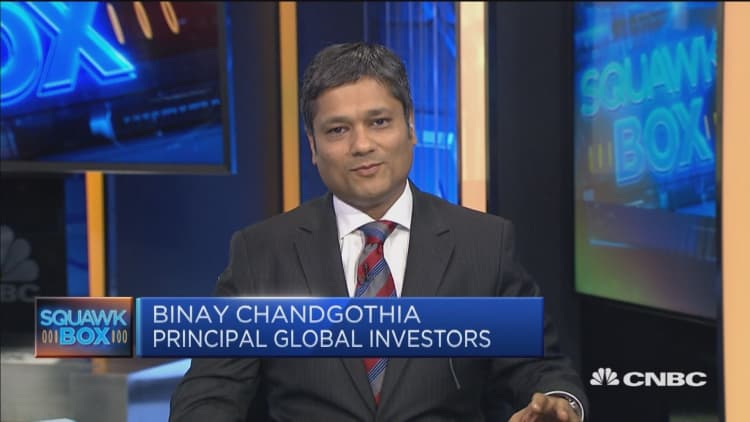
Rick Rieder runs fixed income investing for BlackRock, but lately he is a big believer in stocks.
Persistently low interest rates, weak inflation and a lack of supply relative to demand for bonds leaves Rieder advocating for equities rather than the fixed income market. Rieder is chief investment officer for fixed income at BlackRock, which is the biggest asset manager in the world, handling $5.7 trillion for clients.
"I think people look at equities wrong. They're not factoring in other dynamics around it," he said Tuesday while speaking at Yahoo Finance's All Markets Summit in New York.
The seemingly endless stock market rally continues to generate fear from investors, with the most recent focus on valuation.
As the has notched another 14.5 percent gain in 2017, the index is now trading at about 19 times earnings, considerably above a longer-term average that's closer to 14 times.
However, Rieder believes that doesn't factor in the role of low global interest rates. He said stocks have 10 percent to 15 percent growth left in them.
Though the Federal Reserve has raised its benchmark rate four times since December 2015, the current range of 1 percent to 1.25 percent remains historically low. While other central banks are joining the Fed in gradually normalizing policy, none seems in a rush to push rates higher.
"When you keep a discount rate low, which the central banks are doing, all the cash flow gets to equities in two forms," Rieder said. "You can run a higher equity multiple for a long time."
Rieder said money is flowing to stocks in part because there's not enough fixed income supply in the world, a function of central banks buying bonds and crowding out private investment.
"There's not enough bonds in the world, ... there's not enough supply to meet demand," he said.
In a related issue, Rieder said the market could be making too much of the sweepstakes to see who will chair the Fed next.
President Donald Trump is mulling as many as five candidates for the job, but has indicated that Fed Governor Jerome "Jay" Powell and Stanford economist John Taylor are the two most likely candidates. Dark horses include former Governor Kevin Warsh and current Chair Janet Yellen herself.
Rieder doesn't see a lot of policy differences between the candidates, with Taylor being an exception.
"People have painted Kevin Warsh as a hawk and Jay Powell on the other side as a dove," he said. "I actually think the range of outcomes is much tighter than that."
With Taylor, that could change. He has formulated a rule that uses economic conditions to determine the level for the fed funds rate, which would be nearly triple its current level. Rieder said a Taylor Fed could take "a significantly more hawkish posture" than the central bank's current stance.
Trump has indicated a decision will come before Nov. 3.
WATCH: A strategist explains why he actually prefers bonds now to stocks.

Disclosure: CNBC has a content-sharing partnership with Yahoo's finance site.


